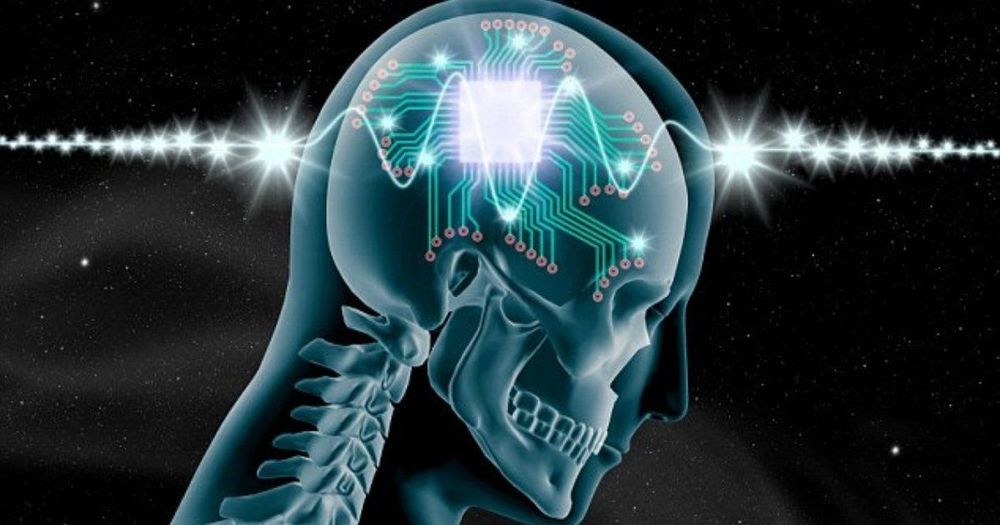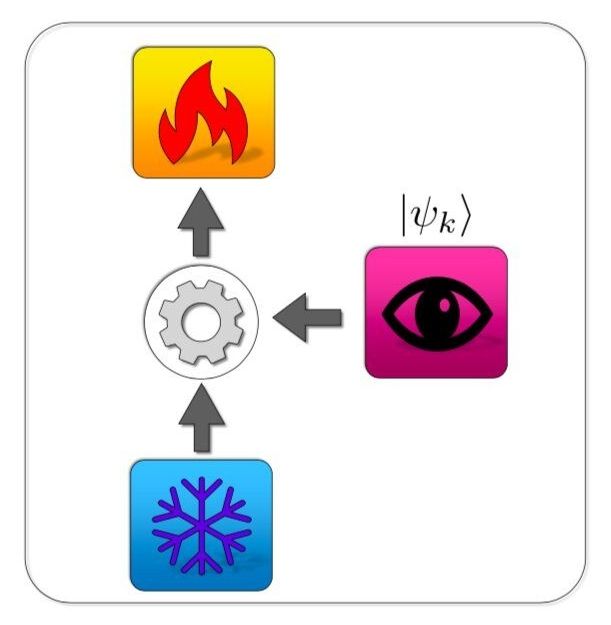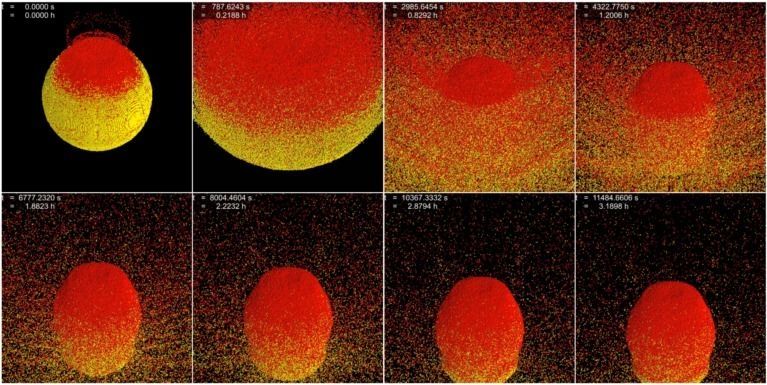Category: computing – Page 828
Prototype watch uses your body to prevent hacking of wearables and implants
We’re used to the security risks posed by someone hacking into our computers, tablets, and smartphones, but what about pacemakers and other implanted medical devices? To help prevent possible murder-by-hacker, engineers at Purdue University have come up with a watch-like device that turns the human body into its own network as a way to keep personal technology private.
Quantum physicists succeed in controlling energy losses and shifts
Quantum computers need to preserve quantum information for a long time to be able to crack important problems faster than a normal computer. Energy losses take the state of the qubit from one to zero, destroying stored quantum information at the same time. Consequently, scientists all over the globe have traditionally worked to remove all sources of energy loss—or dissipation—from these machines.
Dr. Mikko Mottonen from Aalto University and his research team have taken a different approach. “Years ago, we realized that quantum computers actually need dissipation to operate efficiently. The trick is to have it only when you need it,” he explains.
In their paper to be published on 11 March 2019 in Nature Physics, scientists from Aalto University and the University of Oulu demonstrate that they can increase the dissipation rate by a factor of thousand in a high-quality superconducting resonator on demand—such resonators are used in prototype quantum computers.



Using quantum measurements to fuel a cooling engine
Researchers at the University of Florence and Istituto dei Sistemi Complessi, in Italy, have recently proved that the invasiveness of quantum measurements might not always be detrimental. In a study published in Physical Review Letters, they showed that this invasive quality can actually be exploited, using quantum measurements to fuel a cooling engine.
Michele Campisi, one of the researchers involved in the study, has been studying quantum phenomena for several years. In his recent work, he investigated whether quantum phenomena can impact the thermodynamics of nanoscopic devices, such as those employed in quantum computers.
“Most colleagues in the field were looking at coherence and entanglement while only few were looking at another at genuine quantum phenomenon, i.e., the quantum measurement process,” Campisi told Phys.org. “Those studies suggested that you need to accompany measurements with feedback control, as in Maxwell’s demon, in order to exploit their potential. I started thinking about it, and eureka—since quantum measurements are very invasive, they are accompanied by energy exchanges, hence can be used to power engines without the need to do feedback control.”

A student accidentally created a rechargeable battery that could last 400 years
There’s no better example of that than a 2016 discovery at the University of California, Irvine, by doctoral student Mya Le Thai. After playing around in the lab, she made a discovery that could lead to a rechargeable battery that could last up to 400 years. That means longer-lasting laptops and smartphones and fewer lithium ion batteries piling up in landfills.

Researchers close in on physics’ holy grail with ‘super’ breakthrough
A team of scientists in the US has brought us a huge step closer to a superconductor capable of working at room temperature.
If humankind were to find a way to construct a large-scale superconductor that could work at room temperature, the way our energy grids and computers are built – and many other areas of daily life – would be fundamentally changed.
The phenomenon is the lack of electrical resistance and is observed in many materials when they are cooled below temperatures of around −180 degrees Celsius, making them rather limited in their application. However, a team from George Washington University in the US has revealed something that could help us finally reach what is one of the most sought-after achievements in modern physics.
World’s First Battery-Free Bluetooth Chip Pulls Power from the Air
“Without batteries or other high-cost components,” he continued, “tags have unlimited power and lifespan, so [they] can be embedded inside of products that were previously unconnected to the Internet of Things.”
READ MORE: This Tiny Bluetooth Chip Doesn’t Need a Battery Because It Harvests Energy From the Air [The Verge]
More on the IOT: Everything Is Smart in the Future, Even the Freakin’ Walls.

Asteroid Research Points to Planetary Defense Issues
Not as easy as the movies show. Say it isn’t so.
Incoming asteroids may be harder to break than scientists previously thought, finds a Johns Hopkins study that used a new understanding of rock fracture and a new computer modeling method to simulate asteroid collisions.
The findings, to be published in the March 15 print issue of Icarus, can aid in the creation of asteroid impact and deflection strategies, increase understanding of solar system formation, and help design asteroid mining efforts.